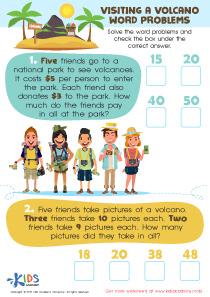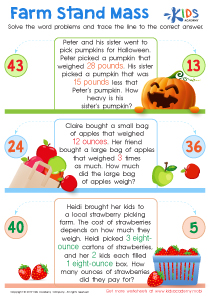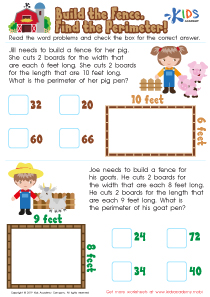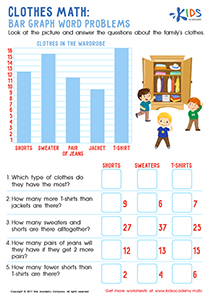Normal Addition and Subtraction Word Problems Worksheets for Ages 3-9 - Page 2
29 filtered results
-
From - To
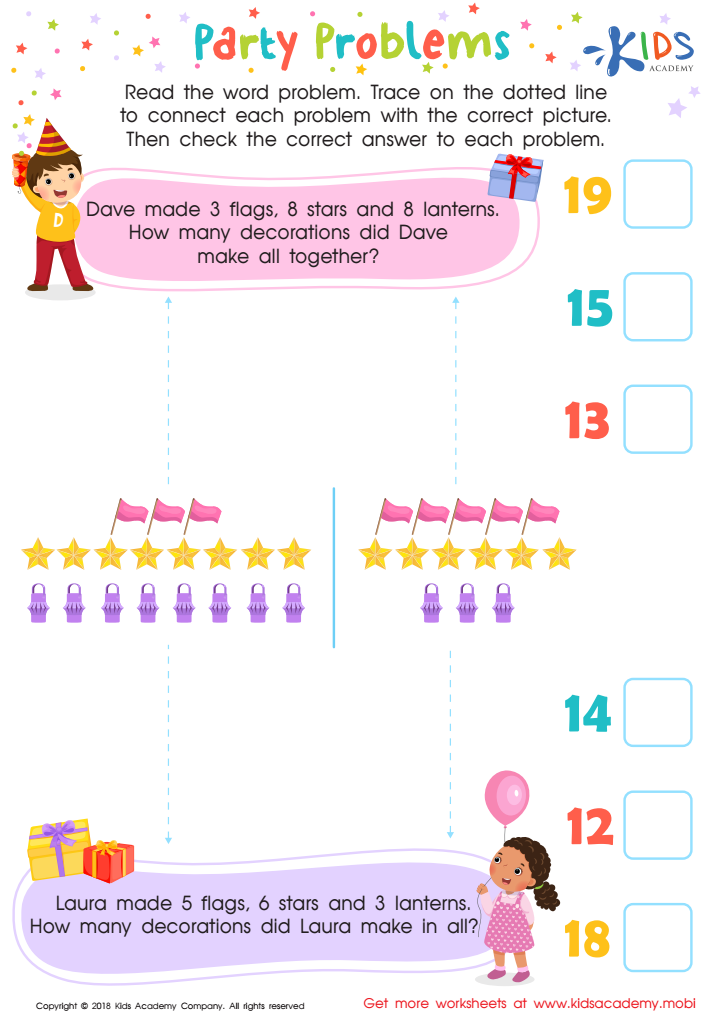

Party Problems Worksheet
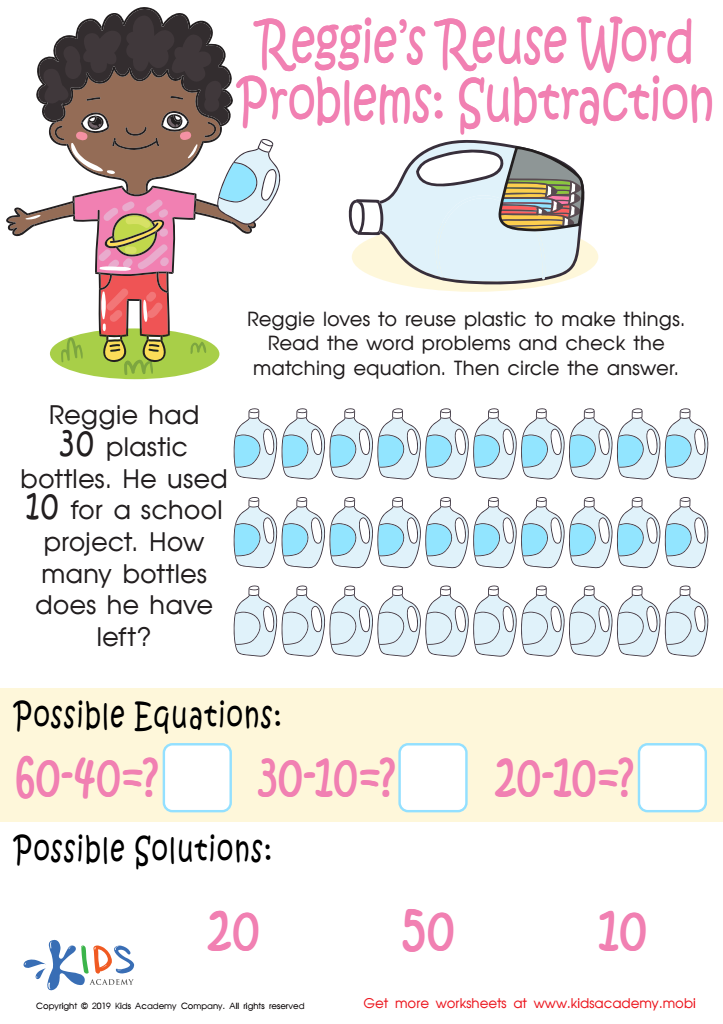

Reggie's Reuse Word Problems: Subtraction Worksheet
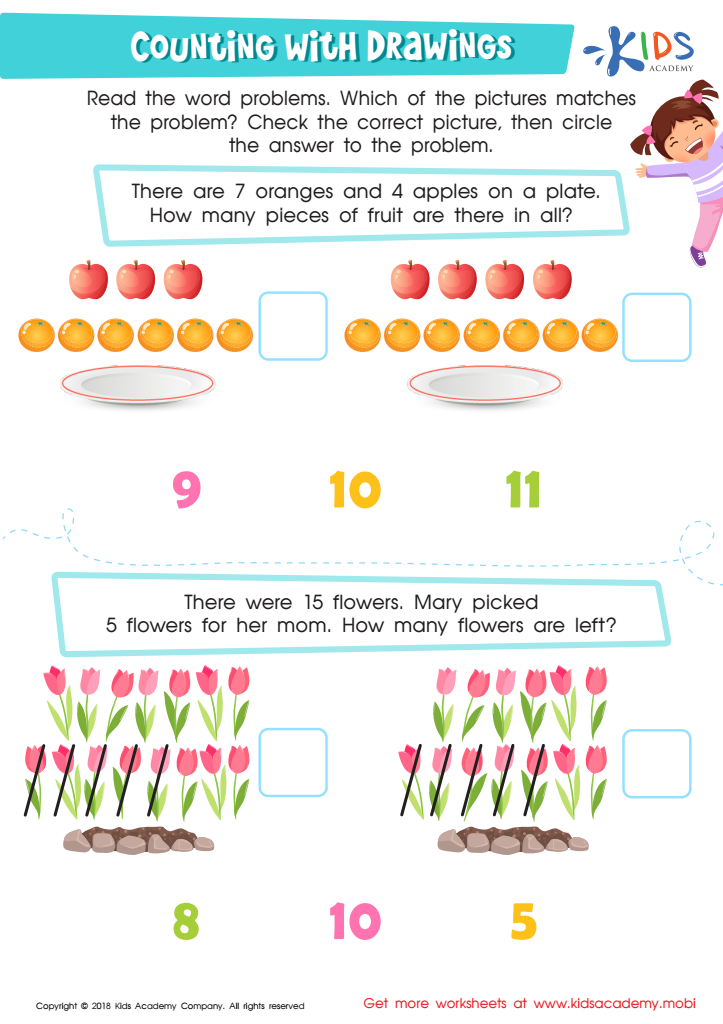

Counting with Drawings:Fruits & Flowers Worksheet
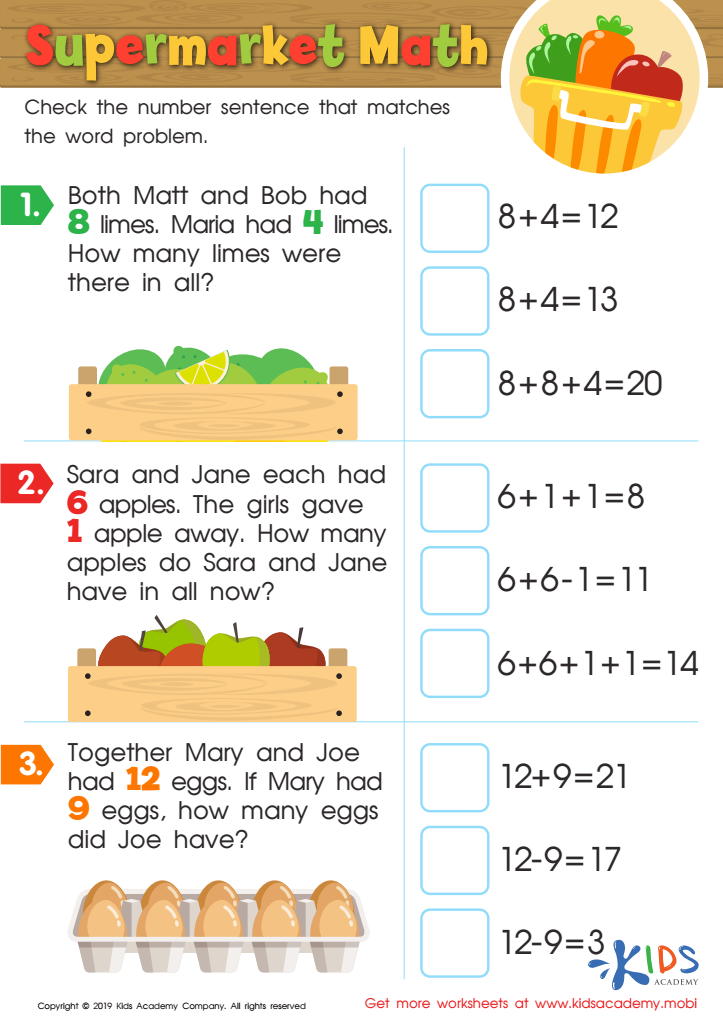

Supermarket Math Worksheet
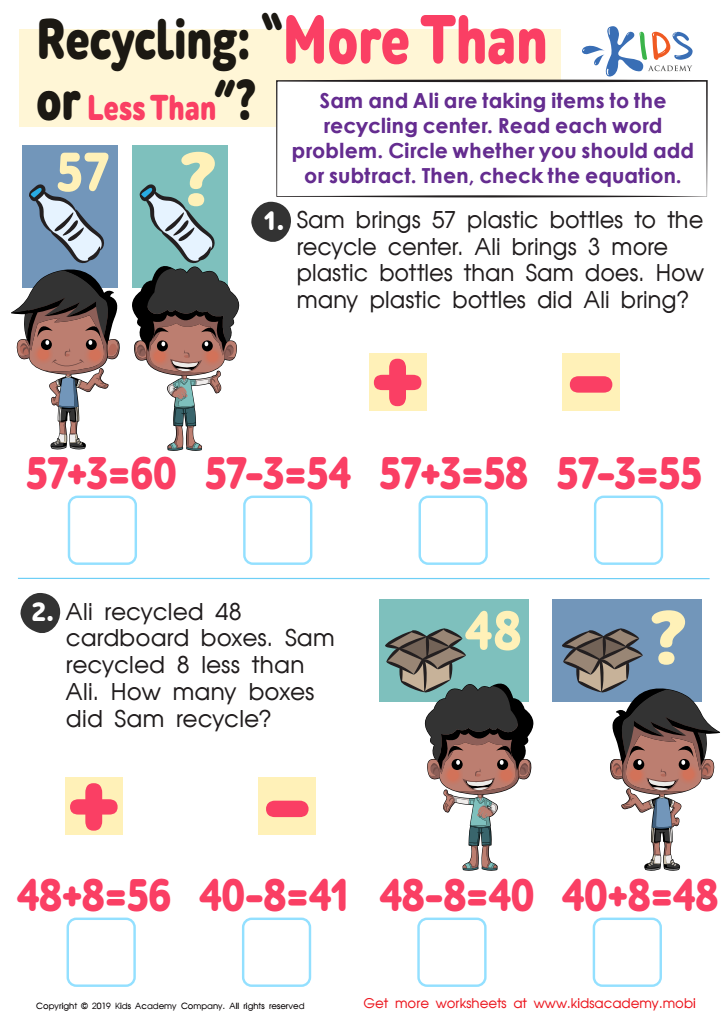

Recycling - More or Less Worksheet
Understanding and mastering normal addition and subtraction word problems is crucial for young minds, ages 3-9, as it lays the foundation for their future mathematical aptitude. These basic arithmetic operations are not just numbers shuffled around but represent essential skills in logical thinking, problem-solving, and analytical reasoning. Parents and teachers should take a keen interest in these areas for several reasons.
Firstly, addition and subtraction are integral to everyday life. From simple tasks like counting toys or sweets to understanding basic economics later on, children's grasp of these concepts influences their daily activities. Secondly, mastering these operations early instills confidence in young learners. Success in these early endeavors encourages a positive attitude towards more complex mathematical challenges in their academic journey.
Further, word problems encourage critical thinking. They require children to interpret text, choose appropriate operations, and execute mathematical steps, thereby bridging language skills with numerical skills. This holistic approach strengthens cognitive development. Additionally, word problems often have real-world contexts, making learning relevant and practical.
Lastly, early proficiency in arithmetic lays the groundwork for more advanced topics like multiplication, division, and algebraic thinking. It’s crucial for parent-teacher collaboration to ensure structured and engaging learning experiences, fostering a strong mathematical foundation and love for learning in the early developmental stages.
 Assign to My Students
Assign to My Students








